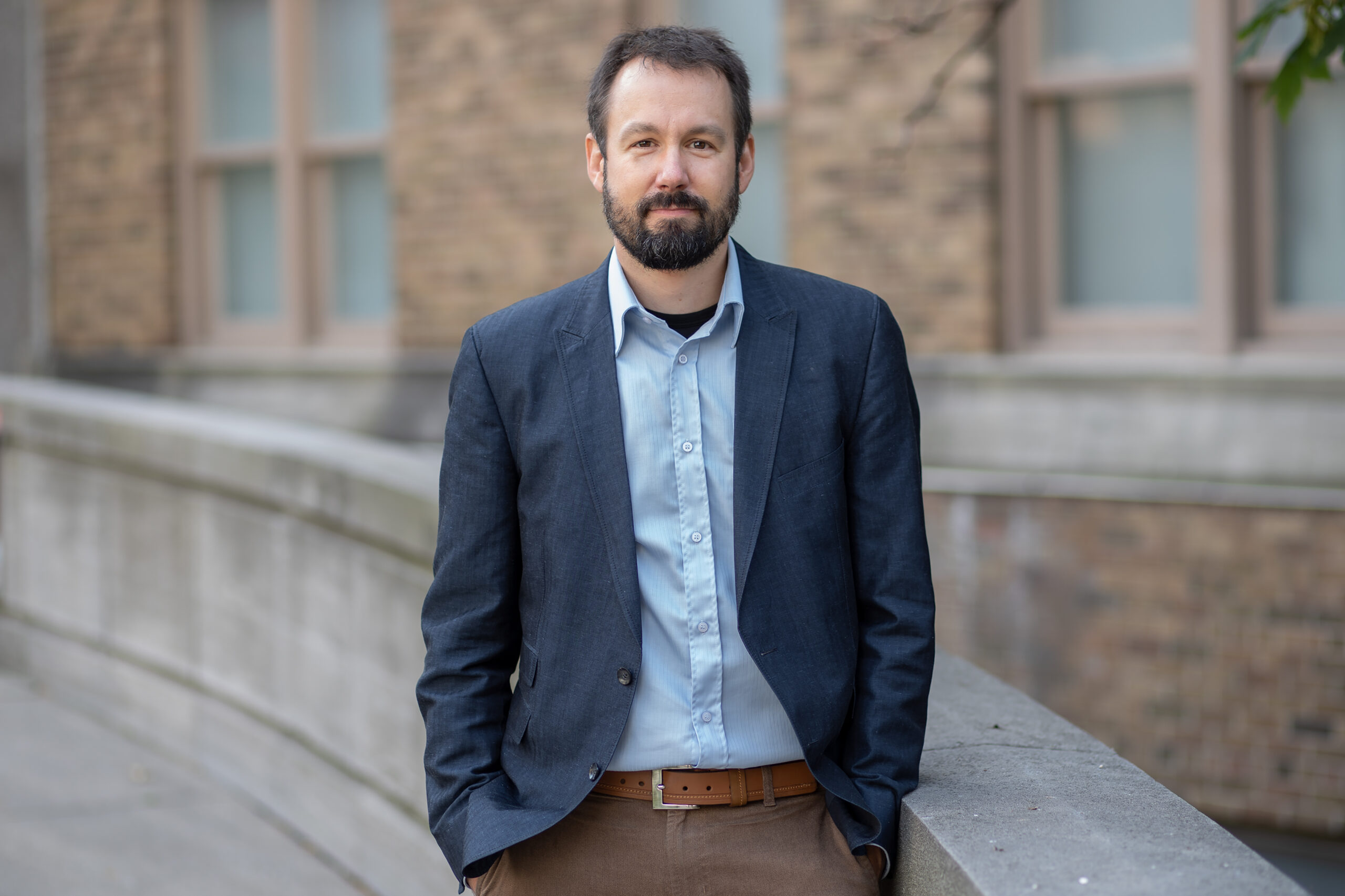January 17, 2023
For our first member spotlight of 2023, we sat down with Jean-Philippe Julien, a senior scientist in the molecular medicine program at SickKids Research Institute and an associate professor in the departments of biochemistry and immunology in the Temerty Faculty of Medicine at the University of Toronto. He also holds the Canada Research Chair in Structural Immunology.
Can you describe your research?
Our research seeks to understand, at the molecular level, the interactions between antibodies and antigens. These can be linked to immune responses to different infectious diseases, such as those caused by viruses, bacteria and parasites, which we all tackle in our lab. Antibodies can also be developed as therapeutics against antigens, whether it’s on cancer cells or immune cells that you’re trying to deplete or recruit. By understanding antibody-antigen interactions at the molecular level, it provides the potential to better our understanding of the mechanism of action as well as improve the engineering and design of next-generation therapies.
How did you become interested in infectious diseases?
When I was doing my graduate studies at U of T, my PhD work focused on HIV, specifically how antibodies could evolve to prevent HIV from entering CD4 T cells. My initial research interest in antibodies targeting infectious diseases emerged in the context of HIV but a lot of what we’ve learned over the years in HIV are now strategies that we’re applying in other fields. This includes other viruses like SARS-CoV-2 and parasites like Plasmodium falciparum, the pathogen that causes malaria.
What excites you the most about EPIC?
We have so many trainees and research programs in the Toronto area and beyond. It’s important to connect people so they know what everyone is doing and can integrate it in new ways. These connections help foster collaboration not just between PIs, but also with trainees and amongst trainees. I think true creativity comes at the intersection of all of that and that’s what excites me the most.
What’s the biggest challenge you face in your work when it comes to infectious diseases?
A primary challenge that we try to tackle in our work is how can we develop interventions against viral diversity. Viruses are constantly mutating to evade the immune system and antibody recognition. That’s true for SARS-CoV-2 and it’s true for HIV, influenza, respiratory syncytial virus, etc… Current technologies are good but not quite at the level where they should be to tackle viral diversity. So how can we create the next wave of technologies to tackle that challenge?
Another challenge we tackle in our work is vaccine development against parasites. Up until last year, there had never been a vaccine developed against a human parasite. We have some excellent vaccines against bacteria, vaccines against viruses, but none against parasites. One reason is that parasites are very complex. For example, Plasmodium falciparum has roughly 6,000 genes and many different life stages. Parts of its life cycle are in a mosquito and parts are in a human host. It can be extracellular or intracellular, sexually differentiated or not. So the first puzzle becomes which antigens do we target in a vaccine to prevent new infections, decrease disease and/or block transmission? One strategy we employ to best answer this question is to understand the immune response that has been elicited. We focus on the antibodies that are produced and determine which ones are inhibitory. This information guides the engineering of a vaccine that would preferentially elicit only the most inhibitory antibodies. A second strategy we are starting to explore is to combine multiple targets from different stages of the parasite’s life into one vaccine molecule such that even if you have a breakthrough infection, you can decrease disease and block transmission.
What do you hope to achieve through your research?
One is really to augment our fundamental understanding of some of these basic immunological principles and contribute to fundamental knowledge at the molecular level. Another goal is translational. We’re really motivated to create solutions, particularly in infectious diseases, that will be accessible for all. A lot of the diseases that we study are predominantly affecting low to middle income countries. We feel very privileged to be able to research these questions and a drive to develop solutions. Our focus is to try and engineer from the get-go solutions that would be affordable because it’s not something that can be easily changed after. This is often really complicated because you’re looking for very simple solutions to very complex problems. For example, you want to make sure that making an immunogen is compatible with certain expression systems so that it can be scaled easily. If you understand the processes that are required to make things accessible at a large scale and try to integrate them early on in the designs, then you can address an important challenge in making medicines affordable for those who need it the most. An aspirational goal.
What are you reading/watching/listening to?
Right now, I’m reading Steve Jobs’ book, which emphasizes the concept of simplicity being the ultimate sophistication in design. Before that, I was reading the biography of Michael Eisner, Disney’s CEO. It was very inspiring to see how he could bring different entities together to create the magic of Disney in a new era. And before that, I read books about the story behind PayPal and Nike, paradigm-shifting corporations that initiated from a few individuals who came together, created and worked hard to realize their visions. I love reading inspirational stories that shape our world.


